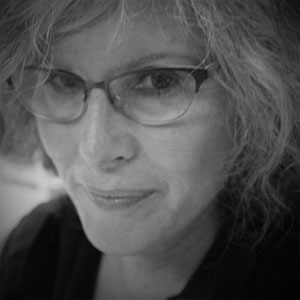The Kolo: A Circle of Healing
The Kolo: Women’s Cross Cultural Collaboration (The Kolo: WCCC) founded and directed by Dr. Danica Borkovich Anderson, focuses on intersecting women’s collaboration, representation and advocacy for social justice to halt violence against women internationally and nationally. The Kolo: WCCC promotes and provides women’s trauma counseling, treatment and train the trainer of lay persons with a feminist perspective coupled with cross cultural practices that enable women in war torn regions, such as Africa (Sub-Sahara), Afghanistan, Bosnia, India and Sri Lanka to become self-sustainable in their communities.
The mission of the Kolo: Women’s Cross Cultural Collaboration is to use programmatic efforts to train the trainer in trauma healing to promote and protect the rights of women and girls in priority areas around the globe where principles of good governance and respect for rule of law are absent or destroyed because of conflict and/or violence against women wielding economic-poverty. The Kolo: Women’s Cross Cultural Collaboration seeks to promote the advancement of women’s rights and the empowerment of women to ensure participation in democratic processes through cultural and oral memory traditions of given regions to attend to trauma, PTSD and caregiver issues.
Our story begins in Bosnia, site of recent and past genocides with brutal wars that have displaced and traumatized its people in unspeakable ways. The title is a reflection of this region and its many horrors since the word Balkan translates into ‘blood and honey’. All over the world, women, men and children have suffered immeasurably from horrific acts of violence in countries such as Kenya, the Congo, Rwanda, India, Sri Lanka, the Sudan and Uganda. Not only does the violence traumatize those who face it, the trauma remains with its victims wherever they travel and is passed down generation after generation.
The reality is, nothing has been effective in facing this grossly fecund intergenerational trauma—or finding a way to heal the wounds it causes. Women and children, especially young girls, bear the brunt of much of the violence perpetuated throughout the world. According to author Theodor Winkler, violence against women is the fourth-leading cause of premature death on the planet, ranking behind only disease, hunger and war.
“We are confronted with the slaughter of Eve, a systematic gendercide of tragic proportion,” wrote Winkler in his book, Women In An Insecure World. Unfortunately, many in the international community don’t even consider rape a war crime.
Many media stories have explored violence but often portray women and children only in their victim roles, turning them into poster models for humanitarian aid agencies and allies. Yet, despite such media exposure and new rules of law concerning rape as war crimes, the ripple effect of trauma continues, scarring entire communities around the globe.
Our work is informed by the kolo, an ancient round dance and circle tradition tracing beyond Paleolithic origins. The kolo has been known to South Slavs for generations since it shares the amenities of organized social life based on collaboration and peace before war became a modern reality. The kolo tradition integrates traumatized women’s lives through their first person stories. This healing process has been especially beneficial to the people of Bosnia who have experienced three wars in the past 100 years. Through the kolo, this “witnessing” enables people to escape the human bondage to intergenerational trauma and the war environment.
The integral part of the kolo, whether dancing the round folk dances or being in a circle, is the concentrated collective ability to bear witness and share one’s story. According to forensic psychotherapist Danica Anderson, PhD and founder of the nonprofit The Kolo: Cross Cultural Collaboration, this circle remains within Bosnians’ consciousness as if it were the only thing from their past that could not be erased.
To tell our story we explore how Bosnian Muslim women war survivors and Anderson, an American/Serbian woman raised in a family of violence, continually return to the kolo experience to heal their brutal intergenerational emotional wounds of trauma. As she worked with these women, two important aspects were made evident to Danica.
First, the way in which the women grew to understand that in healing their own trauma, they heal all others. The second aspect was their refusal to hover between realms of war and violence. They chose instead to bring an archaic cultural symbolism into the aftermath of war so that the literacy of abundance and peace prevails. Through their stories, they are able to author a nonviolent sequel to their lives—and the lives of their children.
The programmatic Kolo Trauma Treatment and Training Format is across the globe as a result. From Africa (Chad, Democratic Republic of the Congo (DRC), Sudan and Uganda), India and Sri Lanka, to the Haiti 2010 earthquake, the Kolo: WCCC has applied the somatic based trauma therapies, one of the earliest forms of sensorimotor psychotherapy and neuropsychological psychology practices.
There is no money, no publicity for this work to help the women heal. In Bosnia, the women are empowered by a safe and ancient archeomythology of Old Europe, a symbolic process that does not offend or provoke the ire of patriarchal religions or governing entities. The process ultimately leads to the painful but necessary bearing witness—communal applications of wisdom, resiliency and thriving life skills. And by bearing witness among those with whom they share the circle, the women remember that they are empowered to heal their families and communities.
Through the kolo’s universal communal features, Danica has experienced and worked the kolo with women in Africa, Sri Lanka and Kerala, India. The Kolo Trauma Treatment Format revokes any outside authority by empowering the participants, the women, to re-remember they manifest culture and are the healers of their global communities—societies where women and children are not invisible or erased.
Staff

Danica Anderson, PhD, Founder and Clinical Director of Programs
It’s always been about what I learned and witnessed.
Dr. Danica Anderson, is a clinical psychology doctorate with concentration in Somatics, received her PhD from The Chicago School of Professional Psychology. From her expansive international fieldwork and expertise in trauma, she devised the inclusive and healing Kolo Informed Trauma Care method. For over 14 years she has served as Psycho-Social, Gender Victims Expert attached to the International Criminal Court (ICC) in Sub-Sahara Africa and consulted with the United States Department of Defense in Afghanistan for over 6 years. She has given international keynote speeches and presentations on inter-generational trauma, war crimes, her international field work in humanitarian hot spots, healing trauma through female social collectives and the Kolo Informed Trauma Care method for over two decades. She has published numerous papers in peer-reviewed journals, and published two books, (1) Blood & Honey Icons: Biosemiotics & Bioculinary, and (2) Blood & Honey: The Secret Herstory of Women; South Slavic Women’s Experiences in a World of Modern-Day Territorial Warfare.
My doctorate in Clinical Psychology, concentration in Somatics only added to my knowledge. My intensified learning began with my mother who survived WWII concentration camp Jasenovac, former Yugoslavia. I had the realization that my grandmothers and mother survived a century of wars in former Yugoslavia. I knew their trauma is passed down through the generations; transgenerational.
Maggie Hazel, Executive Director
Maggie serves as Executive Director to The Kolo: WCCC, bringing with her a professional background in forming institutional foundation, development, programmatic function and social activation work across non profit, corporate and community level organizations. She volunteered with The Kolo: WCCC under Dr. Danica Anderson’s mentorship for five years prior to becoming Executive Director in 2019. She applies systems thinking and specialized focus in women and transformation to grow the impact and reach of The Kolo: WCCC’s international efforts to heal trauma and strengthen women’s collective capacities. She formed a individualized baccalaureate program in Feminist Economics at Hunter College, City University of New York. As the next generation of a veteran of the Vietnam war she lived her formative years on the front lives of intergenerational trauma, there she first learned how to heal and face crisis with self-intact through my committed and wise mother’s lived example. She has a passion for healing the soil, applying biodynamic gardening methods, and playing the upright bass in a tamburitza orchestra group.
Eugene Ahn, Information Systems
Erin Hilleary, Illustrator
Board of Directors

Danica Anderson, Ph.D.

Angela Davison, JD.
Angela is a Board Member of the Kolo: Women’s Cross Cultural Collaboration. She is an enthusiastic volunteer, having served as a judge for twelve years (and counting!) for the FIRST Robotics Competition, an organization inspiring Pre-K – 12 students to embrace STEM subjects. She has also served on the board of directors for Dearborn, MI – based Vista Maria, an organization serving at-risk youth, girls in foster care, and victims of sex trafficking, and on the board of directors for the Women’s Bar Association. Currently employed in the public service sector as a patent examiner with the U.S. Patent and Trademark Office, Angela’s previous employment experiences include serving as in-house counsel to a large, multi-national packaging company and a privately-held pneumatics manufacturer, and as a private practice corporate and intellectual property attorney. A Chicago native and long time Michigander, Angela now resides in Charlotte, NC with her husband and cat. She enjoys reading, yoga, travel and singing Adele songs in the shower; the cat is not a fan of the latter.

Wahu Kaara
is Board Member of the Kolo: Women’s Cross Cultural Collaboration. She is winner of the Nobel Peace Prize in 2005 and one of the leading advocates for social justice in Kenya and the world. She is one of the main person in the establishment of various organizations in Africa for the promotion of human rights, democracy, general education, good governance and gender equality. Wahu Kaara is a globally renowned Kenyan educator, activist and campaigner for social justice. A prolific writer, poet and speaker, Wahu has devoted her time and energy to civic engagement and incisive analysis of the global political and economic architecture, with a special focus on the impact of globalization on the countries of the South, especially Africa.

Dr. Martin Milner
Dr. Milner is Board Member of the Kolo: Women’s Cross Cultural Collaboration. Dr. Milner is medical director and founder of the Center for Natural Medicine, Inc., one of the oldest integrative medicine clinics in the Northwest. He has devoted the focus of his medical practice to naturopathic cardiovascular medicine since 1985.
Dr. Milner has evolved a very effective protocol using amino acids and nutritional cofactors in the management of neurotransmitter deficiency diseases including adrenal exhaustion, fatigue, depression, anxiety, insomnia, tremors, concentration and memory impairment, chronic pain, unresponsive allergies and stress decompensation.
A 1983 graduate of the National College of Naturopathic Medicine, Dr. Milner has been NUNM’s instructor of cardiovascular and pulmonary medicine since 1987. In 1999, Dr. Milner became an NUNM clinical faculty member and founded the Heart & Lung Wellness program to enhance patient care and student training in naturopathic cardiovascular medicine.
Genevieve Vaughn, Gift Economy
Ida SefeRoche, Bosnian-American Genocide Institute
David Pettigrew, Bosnian-American Genocide Institute
Refik Sadikovic, Bosnian-American Genocide Institute
Djenita Svinjar, Bosnian-American Genocide Institute
Azra Smailkadic-Brkic, Bosnian-American Genocide Institute
Belma Sadikovic, Bosnian-American Genocide Institute
Carol McLaughlin, US AID- Afghanistan Development Officer
“Working with you has taught me so much about global trauma and more importantly, global healing. I am constantly amazed by the strength of these wonderful women and their importance and fundamental grounding of entire communities. You are a blessing.”
Kabagambe T Moses, UNICEF
“Danica Anderson, you’re doing a wonderful job around the world bringing hope, healing and love to thousands of people. Your work is a source of inspiration to many starting organisations like ours The I’ll Be There Foundation, that’s dedicated to addressing the challenges of HIV/AIDS, sexual violence, gender equality,drug abuse among youth in high schools,within Uganda. God bless you and hopefully in the future, you will be open to partnership.”

